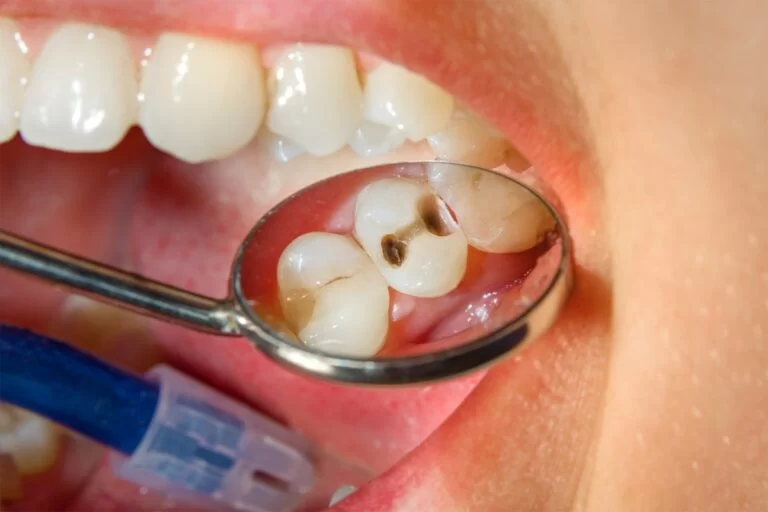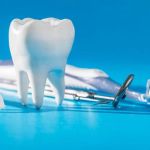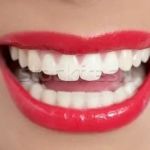
How to Prevent Early Childhood Tooth Decay: Essential Tips for Parents
As a parent, one of your top priorities is ensuring your child’s overall health and well-being. While many parents focus on nutrition, physical activity, and emotional development, oral health is equally important – and yet often overlooked. Early childhood tooth decay is a common issue, but the good news is that it’s largely preventable. In this article, I’ll share practical and effective tips on how to prevent early childhood tooth decay, covering everything from daily routines to healthy eating habits, and why it’s crucial to start early.
The Importance of Early Dental Care
When I first became a parent, I had no idea just how much my child’s oral health could impact their overall health. I thought baby teeth were just placeholders until the permanent ones came in, but I quickly learned that taking care of baby teeth is vital. These first teeth set the stage for how the adult teeth will grow in. Without proper care, cavities in baby teeth can lead to long-term issues like misalignment, speech problems, and even more serious infections. Not to mention, untreated tooth decay in children can cause a great deal of pain and discomfort. That’s why it’s crucial to start practicing good oral hygiene habits early on.
1. Start Brushing Early
As soon as your baby’s first tooth erupts, it’s time to start brushing! It might seem early, but dental professionals recommend brushing baby teeth as soon as they appear. I remember feeling a bit unsure about using toothpaste, but a small, soft-bristled toothbrush and a tiny smear of fluoride toothpaste is all it takes. The fluoride helps strengthen the enamel and protect against cavities, which is key for preventing tooth decay. It’s also important to establish a routine – brushing twice a day, in the morning and before bed, is ideal. This is one of the easiest and most effective ways to ensure that your child’s teeth stay healthy.
2. Teach Proper Brushing Techniques
As your child grows, they’ll want to brush their own teeth, but it’s still up to you to ensure they’re brushing properly. I found that demonstrating how to hold the toothbrush at the right angle, using gentle circular motions, and brushing for at least two minutes helps a lot. Kids often rush through brushing, so it’s helpful to make it fun. We used a timer or a favorite song to make the process feel less like a chore. This teaches them the importance of brushing for long enough to remove all the plaque and food particles that contribute to tooth decay.
3. Avoid Sugary Foods and Drinks
As much as I love giving my child the occasional treat, I’ve learned that sugary foods and drinks are the top culprits behind tooth decay. The bacteria in the mouth feed on sugar, and the acids they produce attack the enamel on teeth. I try to limit sugary snacks like candy, soda, and fruit juices. Instead, I opt for healthier snacks like cheese, yogurt, and fresh fruits or veggies. These foods not only help protect teeth but also provide essential nutrients for overall health. It’s also important to make sure your child drinks plenty of water throughout the day, as this helps rinse away sugar and bacteria.
4. Regular Dental Visits
It’s easy to overlook the importance of regular dental visits, but I learned that these appointments are key for catching problems early on. Most pediatric dentists recommend bringing your child in for their first visit by their first birthday. During these checkups, the dentist can spot any signs of early tooth decay, misalignment, or other potential issues. Early intervention can make a huge difference, and the dentist can provide guidance on brushing techniques, diet, and fluoride use. It’s also a great way to get your child used to the dentist’s office so that future visits are less intimidating.
5. Fluoride Treatments and Sealants
Fluoride is a powerful tool in preventing tooth decay, and your dentist may recommend fluoride treatments for your child, especially if they’re at a higher risk for cavities. Fluoride strengthens the enamel and makes teeth more resistant to decay. Another preventive measure I’ve found helpful is dental sealants. Sealants are a thin protective coating applied to the chewing surfaces of back teeth, which are often harder to clean. These sealants can help protect your child’s teeth from cavities, especially as they get older and their brushing skills improve.
6. Instilling Healthy Habits Early
One of the best things you can do for your child’s oral health is to teach them good habits from an early age. Children often mimic what they see, so when I made sure to brush my own teeth regularly and avoid sugary snacks, my child started to do the same. Make oral care part of the daily routine, just like brushing your hair or washing your face. By making brushing fun and rewarding, I noticed my child started to look forward to it. Positive reinforcement, like praise or a small reward, can motivate them to stick to good habits.
7. Be Mindful of Teething and Thumb-Sucking
When my child was teething, I was concerned about the potential impact on their teeth, especially when they started sucking their thumb for comfort. While thumb-sucking is a common habit in young children, prolonged thumb-sucking can lead to misaligned teeth. If this is something you’re worried about, I recommend speaking with your pediatric dentist, who can provide strategies to help break the habit. Additionally, if your child is teething and experiencing discomfort, be sure to use a cold, clean teething ring to soothe their gums. This can prevent them from reaching for sugary or sticky comfort foods that could contribute to tooth decay.
8. Lead by Example
Finally, one of the best ways to ensure your child follows through with their dental hygiene is to set a good example yourself. I’ve found that when I made oral health a family priority, it became easier to encourage my child to take care of their teeth. Brushing together as a family and making trips to the dentist fun helps establish a positive relationship with oral care. Children are more likely to take their dental hygiene seriously when they see their parents doing the same.
Preventing early childhood tooth decay is entirely possible when you start early and establish good habits. By focusing on proper brushing, limiting sugary foods, regular dental visits, and leading by example, you can ensure your child grows up with a healthy smile that lasts a lifetime.







 Encore Dental of Toms River - An Affiliate of The Smilist4.0 (562 review)
Encore Dental of Toms River - An Affiliate of The Smilist4.0 (562 review) Complete Health Dentistry of Woodland Hills4.0 (335 review)
Complete Health Dentistry of Woodland Hills4.0 (335 review) Aspen Dental - Canton, GA4.0 (573 review)
Aspen Dental - Canton, GA4.0 (573 review) Vision Dental Montana4.0 (97 review)
Vision Dental Montana4.0 (97 review) Main Line Dental Aesthetics4.0 (336 review)
Main Line Dental Aesthetics4.0 (336 review) 24 Hour Dentist3.0 (450 review)
24 Hour Dentist3.0 (450 review) The Importance of Oral Health Education During Pregnancy for a Healthy Pregnancy
The Importance of Oral Health Education During Pregnancy for a Healthy Pregnancy Best Tips for Brushing Your Teeth Properly for Healthy Gums: Essential Techniques for Oral Health
Best Tips for Brushing Your Teeth Properly for Healthy Gums: Essential Techniques for Oral Health Why Skipping Dental Checkups Can Lead to Bigger Oral Health Problems
Why Skipping Dental Checkups Can Lead to Bigger Oral Health Problems Advantages of Porcelain Dental Restorations
Advantages of Porcelain Dental Restorations How Can Diabetes Cause Tooth and Gum Problems? Preventing and Managing Oral Health Issues
How Can Diabetes Cause Tooth and Gum Problems? Preventing and Managing Oral Health Issues Healthy Habits for Promoting Good Oral Health and Hygiene: Tips for a Healthy Smile
Healthy Habits for Promoting Good Oral Health and Hygiene: Tips for a Healthy Smile